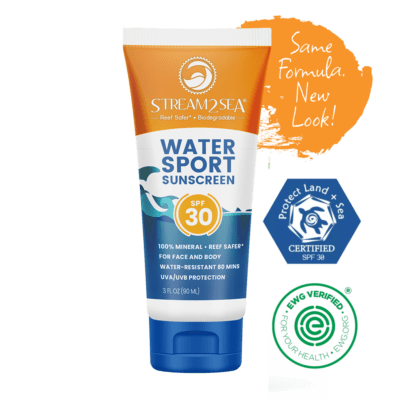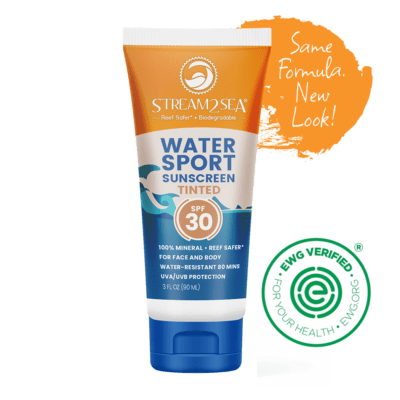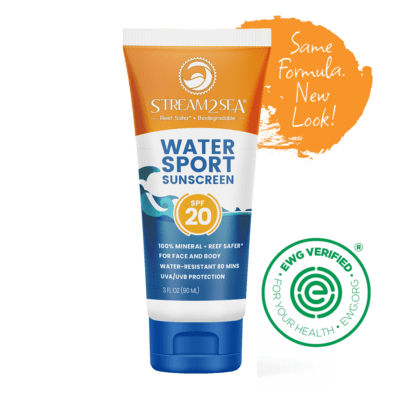Key West, the southernmost city of the continental United States, rightfully wants to protect the coral reefs that fuel their economy and their water-loving souls.
It’s safe to say the Florida Legislature does not have this same sentiment – but we are asking Governor DeSantis to stand with our reefs!
A year after Key West voted to ban the sale of toxic sunscreens that contain chemicals which are harmful to coral reefs and humans, the House voted 68-47 Tuesday to prohibit toxic sunscreen bans. The ordinance is set to go into place next year unless DeSantis signs the bill.
Senate Bill 172, the Florida Drug and Cosmetic Act, sponsored by Sen. Rob Bradley, R-Fleming Island, was approved in a 68-47 House vote. The bill, approved by the Senate on Jan. 29 in a 25-14 vote, now goes to Gov. Ron DeSantis’ desk, where it awaits an uncertain fate.
Bill supporters are calling research on toxic sunscreen chemicals ‘junk science.’
Democratic Rep. Javier Fernandez has claimed the opposite, saying that 6,000 tons of sunscreen chemicals wash up on coral reefs across the planet each year. “How can anyone characterize the action of the city of Key West as anything other than reasonable and prudent? … What the leadership of the city of Key West did makes absolute sense.”
Dermatologists, who have been swayed by chemical sunscreen rhetoric, are saying that the research proving toxic sunscreens containing oxybenzone or octinoxate harm coral isn’t solid, while skin cancer being caused by a lack of sunscreen is. Among the companies supporting the bill, were Johnson & Johnson, which manufactures sunscreens with oxybenzone; the Florida Chamber of Commerce; and the Florida Society of Dermatology & Dermatologic Surgery.
Even the FDA has declared these toxic ingredients are not GRASE, or generally recognized as safe and effective,which is a designation for drugs that do not require prior approval from the U.S. Food and Drug Administration in order to enter the United States marketplace because they are generally recognized as safe and effective by medical professionals.
We believe that this is not an issue of leaving the consumer unprotected, as these dermatologists have claimed. There are non-toxic, mineral-based sunscreens currently on the market, such as our own, which can protect consumers without the use of harmful oxybenzone.
Key West isn’t the only place to pass a toxic sunscreen ban. Hawaii, the U.S. Virgin Islands, the Caribbean island of Bonaire and the archipelago nation of Palau in the western Pacific have all enacted sunscreen bans that are either in place or will be over the next two years. It seems that every island nation that has formally reviewed the science has passed appropriate legislation to protect their reefs.
Democratic Rep. Anna Eskamani noted that even the state Department of Environmental Protection is promoting reef-safe sunscreen. The department has a 30-second YouTube video offering advice on how to protect reefs, including not using plastic straws and other single-use plastics, not standing on or touching reefs and using reef-safe products.
Showing his support for protecting the environment, DeSantis vetoed a bill that would prevent local governments from banning plastic straws. Key West City Commissioner Jimmy Weekley now hopes DeSantis will do the same with this bill and expressed frustration that the Legislature is meddling in local affairs.
Rep. Sam Killebrew, R-Winter Haven, joined Democrats in opposing the measure. “With the federal and state governments spending resources to protect the coral reefs, it is counterintuitive that, today, we’re voting to block local governments from protecting the same coral reefs,” he said.
Although final say on the Key West toxic sunscreen ban is still uncertain, you can take the guesswork out of whether or not what you put on your skin is hurting you and the environment.
At Stream2Sea, we are doing everything we can to produce sunscreen that is tested and proven safe for freshwater fish, saltwater fish, and coral larvae. This is why we’ve done extensive testing through Eckerd College at Mote Marine’s Tropical Research Station, and have put our SPF30 through the stringent HEL Labs Protect Land and Sea testing.
Read more about our testing:
https://stream2sea.com/ocean-and-coral-reef-safe-sunscreens/
https://stream2sea.com/protect-land-and-sea-certification/
Read more about how Stream2Sea supports sunscreen bans and how you can help:


